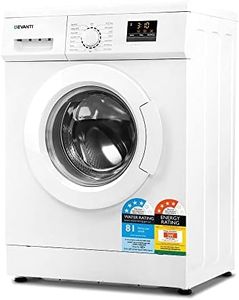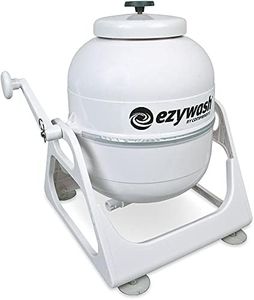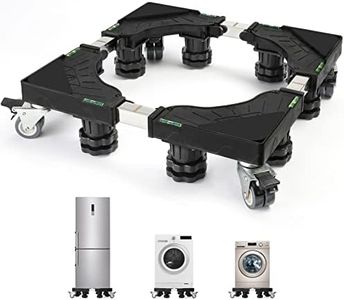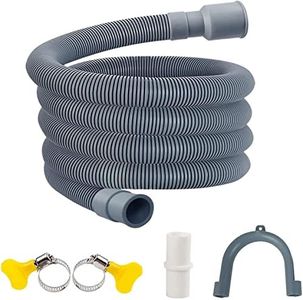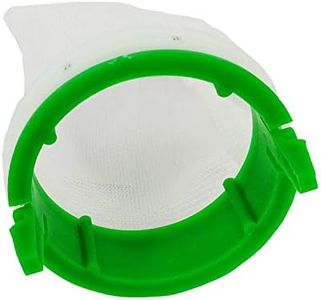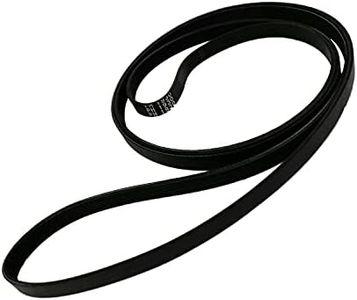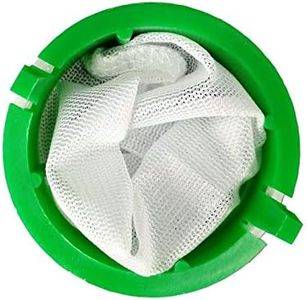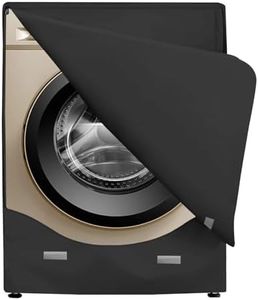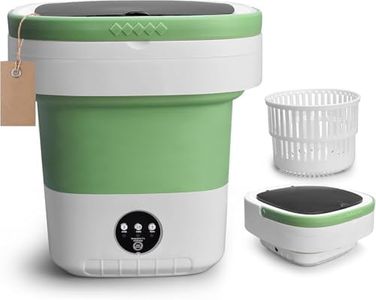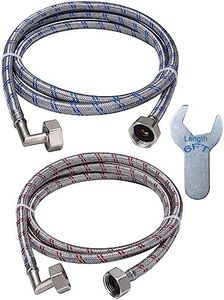We Use CookiesWe use cookies to enhance the security, performance,
functionality and for analytical and promotional activities. By continuing to browse this site you
are agreeing to our privacy policy
10 Best Washing Machines
From leading brands and best sellers available on the web.By clicking on a link to a third party's website, log data is shared with that third party.
Buying Guide for the Best Washing Machines
Choosing the right washing machine can make laundry day much easier and more efficient. The key to picking the best fit is understanding your household's needs, such as how much laundry you do, what types of fabrics you wash, and the space available in your home. Comparing a few important features will help you narrow down your choices and ensure you get a machine that works for your lifestyle.CapacityCapacity refers to the amount of laundry the machine can handle in one cycle, usually measured in kilograms. This is important because it determines how much clothing you can wash at once and affects energy and water usage. Small capacities (around 5-6 kg) are good for singles or couples who do small loads, medium capacities (7-8 kg) suit families with moderate laundry needs, while large capacities (9 kg or more) are best for larger households or those who often wash bulky items like bedding. Think about how many loads you do per week and the size of items you wash most often to pick a capacity that matches your lifestyle.
Type (Front Load vs. Top Load)The type of washing machine—front load or top load—affects usability, cleaning performance, and where the machine can be placed. Front-load machines usually offer better cleaning and are more energy efficient, but they may take longer per cycle and require bending to load and unload. They're great for those wanting top performance and who have space for a swinging door. Top-load machines are easier to load without bending and often have faster cycles, which is helpful for people with mobility issues or those who want a quick wash. Consider your laundry space, physical comfort, and how you prefer to load and unload clothes.
Spin SpeedSpin speed tells you how fast the drum spins to remove water, measured in revolutions per minute (RPM). Higher spin speeds remove more water, meaning clothes dry faster, but can be harsher on delicate fabrics. Machines offer a range of speeds: low (around 800-1000 RPM) is gentle and good for delicates, medium (1000-1400 RPM) balances performance for most clothes, while high (1400 RPM or more) dries loads quickly but may not be suitable for delicate items. Think about the types of fabric you frequently wash and whether you need clothes to dry quickly when choosing the right spin speed.
Wash ProgramsWash programs are preset cycles tailored for different fabrics and soil levels—like quick wash, delicate, bedding, and heavy-duty modes. The more wash programs a machine has, the more flexibility you get for your laundry needs. If you wash a variety of clothing types, or need cycles for special loads like baby clothes or sports gear, having multiple programs can be extremely helpful. If you generally wash similar types of loads, you might not need as many options. Consider your regular laundry habits to decide how many and what kinds of programs you'll actually use.
Energy and Water EfficiencyEnergy and water efficiency indicates how much power and water the machine uses, usually shown on a label or rating system. Efficient machines help lower utility bills and are better for the environment. Highly efficient models use less water and energy per load, which is ideal if you want to be more eco-friendly or reduce running costs. Standard machines might use more but could have a lower upfront cost. If sustainability and ongoing costs matter to you, check for machines with higher efficiency ratings.
Noise LevelNoise level tells you how loud the washing machine will be during operation, particularly important if your laundry is close to living areas. Machines list noise levels in decibels (dB), with lower numbers being quieter. Quiet machines are ideal for homes where laundry is done at night or near bedrooms. If you don't mind some noise or your laundry is in a separate space, this spec may be less important. Think about your living arrangement and whether peaceful operation matters to you.
Size and InstallationSize and installation requirements determine whether the washing machine will fit in your laundry area and if any special setup is needed. Measure your available space, including doorways and access points, and check the machine's width, depth, and height. Some machines need only basic installation, while others—especially built-in models—may require more preparation. Choosing a model that fits your space and can be easily installed is crucial for hassle-free use.

